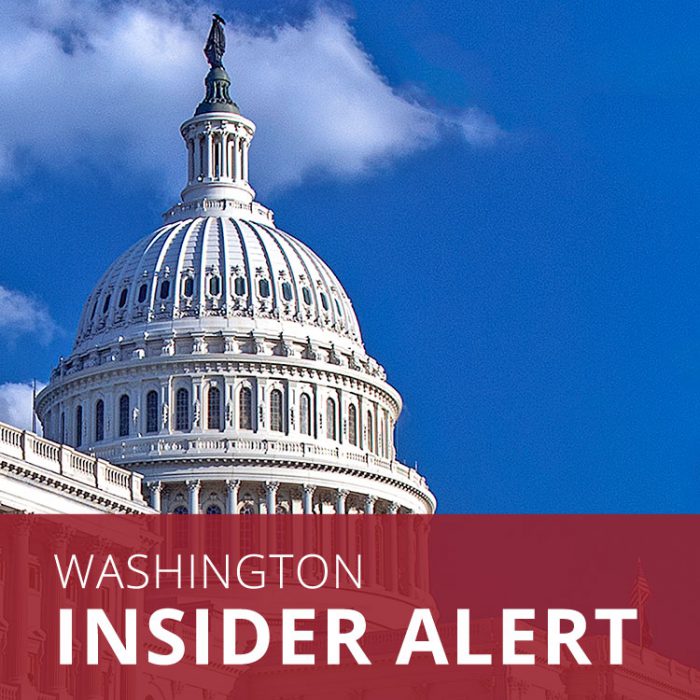DOL and DHS Issue Interim Final Rules Overhauling H-1B Visa Program
 October 8, 2020 (WASHINGTON INSIDER ALERT) - Today, the Department of Homeland Security (DHS) and the Department of Labor (DOL) published Interim Final Rules (IFR) which will make significant changes to the H-1B program, including narrowing the definition of “specialty occupation” (DHS IFR) and restructuring the methodology for computing prevailing wage levels for several foreign worker programs (DOL IFR). The DOL IFR takes effect immediately while the DHS IFR will take effect in 60 days on December 7, 2020. Both rules are Interim Final Rules, which means the agencies find “for good cause” that a comment period would be “impracticable, unnecessary, or contrary to the public interest."
October 8, 2020 (WASHINGTON INSIDER ALERT) - Today, the Department of Homeland Security (DHS) and the Department of Labor (DOL) published Interim Final Rules (IFR) which will make significant changes to the H-1B program, including narrowing the definition of “specialty occupation” (DHS IFR) and restructuring the methodology for computing prevailing wage levels for several foreign worker programs (DOL IFR). The DOL IFR takes effect immediately while the DHS IFR will take effect in 60 days on December 7, 2020. Both rules are Interim Final Rules, which means the agencies find “for good cause” that a comment period would be “impracticable, unnecessary, or contrary to the public interest."
DOL IFR
DOL is amending its regulations governing the computation of prevailing wages for the H-1B, E-3, H-1B1 and PERM programs. Specifically, the regulation changes the way DOL will compute wage levels under the Department’s four-tiered wage structure based on the Occupational Employment Statistics (OES) wage survey administered by the Bureau of Labor Statistics (BLS). The four-tiered wage structure represents the range of skills from entry level to experienced.
The new wage structure will significantly increase OES prevailing wage minimums for foreign workers at all four levels of skill and experience. For example, the new rule will increase the entry-level wage minimum for Skill Level 1 to the 45th percentile of the average wage of their profession’s category — under current rules the wage minimum is set at the 17th percentile. Skill Levels 2, 3 and 4 increase to the following percentiles respectively: 62, 78 and 95. In spite of these wage increases, the regulation will permit employers to continue to use alternative wage sources instead of DOL prevailing wage data.
DOL has prepared Frequently Asked Questions to help stakeholders better understand the IFR.
DHS IFR
DHS has been planning on issuing regulations “to revise the definition of specialty occupation to increase focus on obtaining the best and the brightest foreign nationals via the H-1B program, and revise the definition of employment and employer-employee relationship to better protect U.S. workers and wages” since the fall of 2017.
While initially the rule had been targeted to go through regular notice-and-comment rule making, DHS determined that the economic crisis caused by the COVID-19 pandemic is an “obvious and compelling fact” that justifies good cause “to immediately ensure that employing H-1B workers will not worsen the economic crisis."
Among other changes, the new rule amends the definition of a “specialty occupation” to “clarify that there must be a direct relationship between the required degree field and the duties of the position” and “that a position would not qualify as a specialty occupation if attainment of a general degree, without further specialization, is sufficient to qualify for the position.”
Next Steps
While DOL’s IFR will take effect immediately, the Department will still take public comment for 30 days following the effective date. DHS IFR will take effect in 60 days, and written comments will be accepted for 60 days. CUPA-HR will work with our higher ed colleagues to submit comments to the two departments. It is also expected that both regulations will be challenged in court.



 October 8, 2020 (WASHINGTON INSIDER ALERT) - Today, the Department of Homeland Security (DHS) and the Department of Labor (DOL) published Interim Final Rules (IFR) which will make significant changes to the H-1B program, including narrowing the definition of “specialty occupation” (
October 8, 2020 (WASHINGTON INSIDER ALERT) - Today, the Department of Homeland Security (DHS) and the Department of Labor (DOL) published Interim Final Rules (IFR) which will make significant changes to the H-1B program, including narrowing the definition of “specialty occupation” (